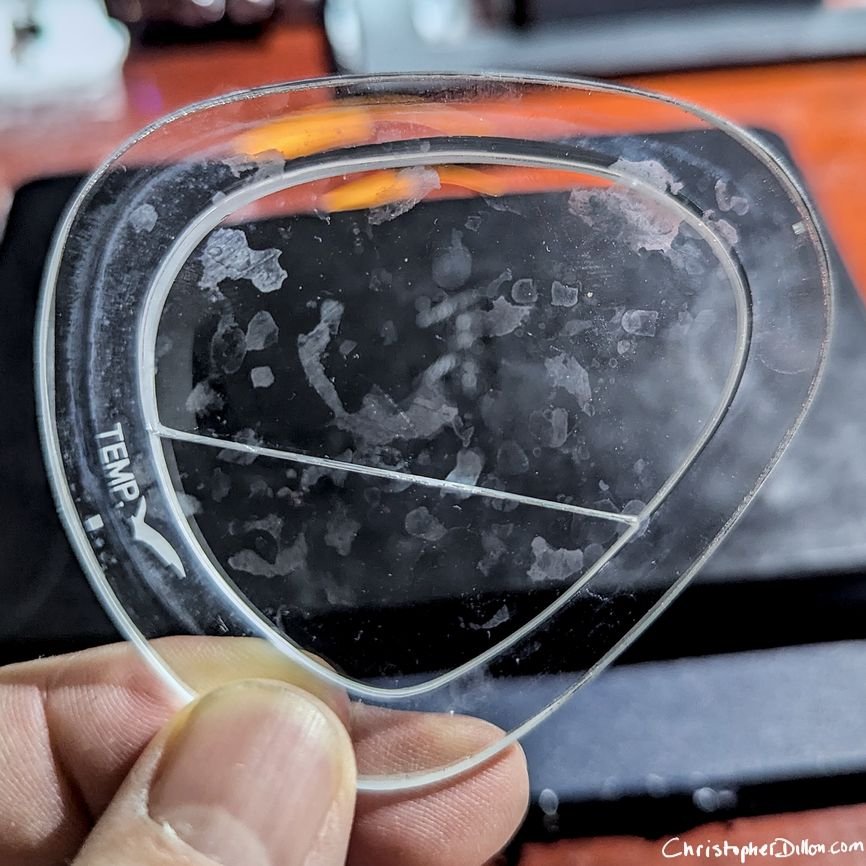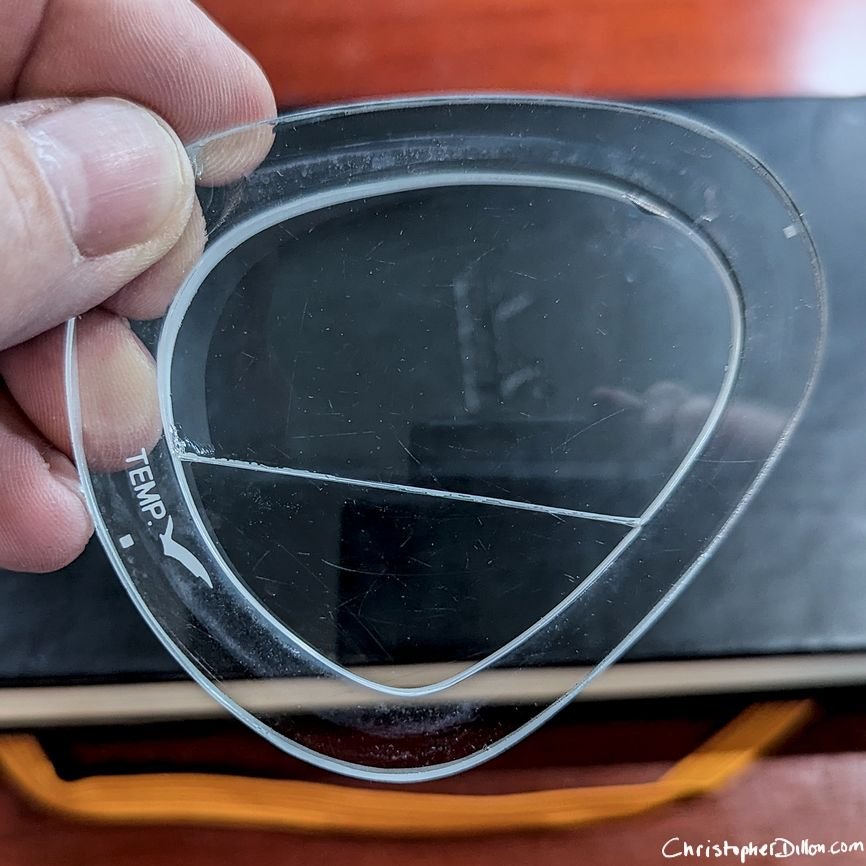
Did you know hard water stains can accumulate on and damage the lenses of your scuba mask?
I wear a Gull brand scuba mask, with prescription bifocal lenses. After my prescription changed, I ordered a new mask from Gull, and used the old one as a backup.
I’m diligent about rinsing my gear after each dive, including my backup mask, which sits in a thigh pocket on my wetsuit.
On a recent dive, I used the backup mask and was surprised that the lenses were unclear. What I suspected to be dirt turned out to be hard water stains. While I made a point of rinsing the mask, I had neglected to wipe the lenses afterward. That allowed hard water stains to accumulate on the outside of the lenses.
Hard water solutions
After consulting the internet for suggestions, I soaked both lenses in vinegar, then hydrogen peroxide and then rubbed the stains with a paste of baking soda and water. I tried a glass-safe household cleaner (Jif/Vim) as well as table salt on a lemon wedge. None of this worked.
I emailed Gull in Japan, who suggested contacting an optician shop. I visited three shops here in Hong Kong, with no success.
A second internet search recommended using cerium oxide (CeO2, aka optician’s rouge). Since the lenses were nearly useless in their current condition, I didn’t have much to lose.
Cerium oxide to the rescue
After unsuccessfully trying to buy cerium oxide in Kowloon’s hardware district, I ordered an 8-ounce package of Gordon Glass optical grade cerium oxide polishing compound from Amazon (US$30).
I started by making a slurry of two parts cerium oxide to one part distilled water, and polishing one lens with a microfiber eyeglass cloth. After about five minutes of polishing in a circular motion with light pressure, the stains began to disappear.
I increased the cerium oxide/water ratio to 4:1, switched to a soft plastic pot scrubber and applied a little bit more pressure. After about 10 minutes polishing each lens, the hard water stains were gone. A few scratches remained, but not enough to ruin my view.

I rinsed the lenses under hot water and scrubbed them with an old toothbrush to ensure all the polishing compound was removed.
Following safety instructions on the internet, I wore rubber gloves, eye protection and an apron. Cerium oxide is a very fine powder, which I mixed into a paste outdoors to ensure sufficient ventilation. In total, I used less than an ounce of the polishing compound.
Christopher Dillon chaired the Hong Kong–based South China Diving Club from 2018 to 2020.